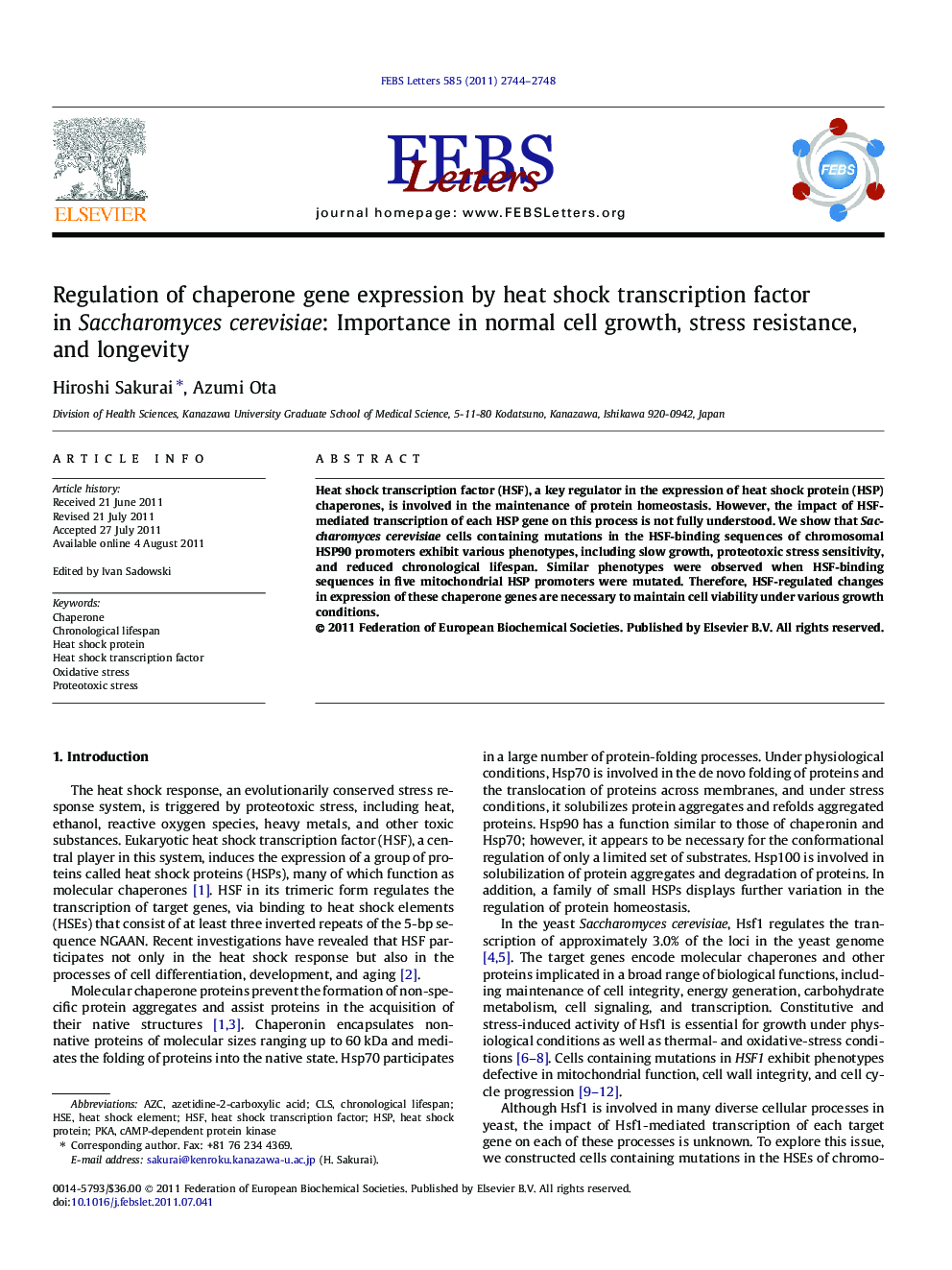| Article ID | Journal | Published Year | Pages | File Type |
|---|---|---|---|---|
| 2047957 | FEBS Letters | 2011 | 5 Pages |
Heat shock transcription factor (HSF), a key regulator in the expression of heat shock protein (HSP) chaperones, is involved in the maintenance of protein homeostasis. However, the impact of HSF-mediated transcription of each HSP gene on this process is not fully understood. We show that Saccharomyces cerevisiae cells containing mutations in the HSF-binding sequences of chromosomal HSP90 promoters exhibit various phenotypes, including slow growth, proteotoxic stress sensitivity, and reduced chronological lifespan. Similar phenotypes were observed when HSF-binding sequences in five mitochondrial HSP promoters were mutated. Therefore, HSF-regulated changes in expression of these chaperone genes are necessary to maintain cell viability under various growth conditions.
► Yeast Hsf1 is a key transcription factor of HSP90 and mitochondrial HSP genes. ► Hsf1-regulated expression of these chaperone genes is necessary for normal growth. ► Expression of these target genes is necessary for resistance to proteotoxic stress. ► Expression of these genes is also involved in chronological lifespan. ► Hsf1 regulates longevity through mechanisms that are separate from Rim15.
